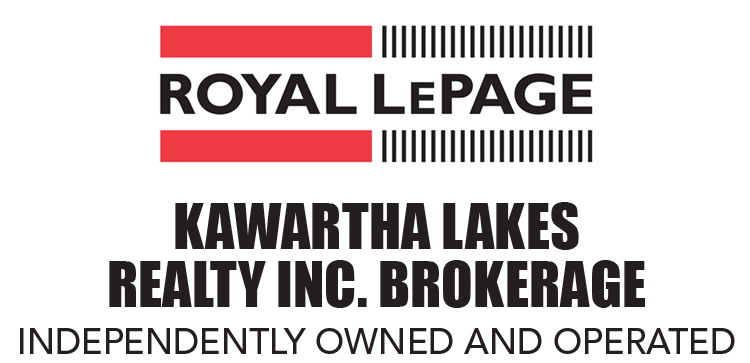We can help you sell your home
We will … actively advertise your property in our local newspaper, Best Homes. All of our listings are posted on MLS (www.realtor.ca and www.icx.ca for commercial), on our local Kawartha Lakes Real Estate Board, on the Durham Real Estate Board, as well as on our personal website for more exposure.
We will … have open houses for the public to come through and view your property at the most convenient time for you as well as create brochures for potential buyers to peruse.
We will … promote your property to the very best of our ability in order to have the quickest sale possible.
We will … be available to you for any questions and concerns you may have about the sale of your home and provide you with answers to try to ease your mind.
Selling your home? Guy & Gina Masters can help.
1. Decide when to sell
In real estate, timing influences your home’s selling price. Working with a REALTOR® can help make timing work for you.
A buyer’s versus a seller’s market?
When lots of people are looking for homes but not many are for sale, it’s a ‘seller’s market’, because the seller has something everybody wants. When there are lots of homes for sale and not many people buying them, it’s called a ‘buyer’s market’ because buyers have more power of choice.
How quickly do you need to sell your home?
In a seller’s market, top price and a fast sale can go hand-in-hand. In a buyer’s market, more sellers are competing for your potential buyer. If you have to sell right now, consider lowering your asking price a bit to speed up the sale. Masters Real Estate can help you figure out the right price-to-speed ratio.
Seasonality. Do home sales get frostbite?
It’s true. Winter sales tend to be slower, and spring sales are more brisk. Regardless, there are always people looking to buy, and seasonality is only one of many factors to consider.
What if you’re also buying a home?
If you sell your existing home for a ‘low’ price, you’re probably also buying at a low price. If you are upgrading to a larger home, this actually works to your advantage. If you’re downsizing from a bigger home to a smaller home or a condo, you need to pay a bit more attention to the market.
To buy first or sell first? The eternal question
Many people are able to time their sale and purchase so they happen on the same “closing date”. As a buyer, you can make your offer “conditional” on the sale of your existing home to make sure you’re not left paying for two homes. As a seller, you can try to extend the “closing period” to give yourself more time to find your next home. Masters Real Estate can provide advice and counsel during these kind of negotiations.
What if you find your new dream home before you’ve started to sell your old one?
Talk to your existing mortgage lender about “Bridge Financing”. This is when your lender (the bank) agrees to lend you the down payment for your new dream home, while you still cover the mortgage on your existing property.
2. Prepare your finances
Before the offers start rolling in, you should prepare for the massive amounts of money that will pass through your hands.
Still have a way to go paying off your mortgage? Here are some things to consider.
“Discharging”your mortgage
Many people use the proceeds from the sale of their home to “discharge” or pay off their mortgage. If you have what is known as an “open” mortgage, you can pay it all off without any penalties. If you have a “closed” mortgage, be prepared to pay a penalty. The penalty amount will depend on a number of factors, including how much time is left on the term of the mortgage.
If you’re buying a new home, is your mortgage “portable”?
A “portable” mortgage means you can take your mortgage money with you and buy a new home, without penalty. This can be a real bonus if the interest rate on your mortgage is lower than existing rates! If your new home is more expensive, and requires more mortgage, you’ll have to borrow the extra money at the current market rate.
Maybe the buyer is “assuming” your mortgage
Your mortgage may have a feature that allows the new buyer to take over your mortgage. If the interest rate is lower than existing rates, this can be a very enticing selling feature for your home.
Become a mortgage lender yourself?
If your buyer is having trouble arranging all the money to buy your property, you may consider lending directly to them. This is called a “Vendor Take Back” mortgage, and it’s often used by sellers to help move a property in a slower market. This is an incredibly complicated financial dealing, and you must talk with your financial advisor, lawyer and the professionals at Masters Real Estate before choosing this route.
If you find your new dream home before you’ve started to sell your old one
Talk to your existing mortgage lender. You may be able to arrange “Bridge Financing”. This is when your lender (the bank) is confident your existing home will sell quickly, and they agree to lend you the down payment for your new dream home.
Capital gains tax
If the home was your primary residence, you will not have to pay taxes on any capital gain (the increase in the value of your home). If you had tenants living in part of your home, such as the basement, you will pay capital gains tax on a portion of your profits. You may also owe capital gains tax if you’re selling a vacation or investment property. Talk with an accountant to find out what you’ll have to pay.
3. Is Masters Real Estate the right choice for you?
There are many reasons to choose Masters Real Estate
We are often asked how we manage to get our Buyer’s into the right home so quickly. We usually respond, “It’s not WHAT you know, it’s WHO you know!” We say this because, aside from spending our entire lives in the Kawartha Lakes, an amazing amount of our sales involve people we already know and from listings that are in our office. As one of the top companies in The City of Kawartha Lakes, we have an extensive number of homes available for purchase. Many times the right home for you is about to be listed and having the inside track will help you get
the home of your dreams.
We will … actively advertise your property in our local newspaper, Best Homes. All of our listings are posted on MLS (www.realtor.ca and www.icx.ca for commercial), on our local Kawartha Lakes Real Estate Board, on the Durham Real Estate Board, as well as on our personal website for more exposure.
We will … have open houses for the public to come through and view your property at the most convenient time for you as well as create brochures for potential buyers to peruse.
We will … promote your property to the very best of our ability in order to have the quickest sale possible.
We will … be available to you for any questions and concerns you may have about the sale of your home and provide you with answers to try to ease your mind.
We can help you purchase your next home
 We will set you up in our Prospector program so you will start to receive via email any new listings as they become available that meet your criteria and needs.
We will set you up in our Prospector program so you will start to receive via email any new listings as they become available that meet your criteria and needs.
We will show you any properties that meet your requirements and only show you the ones you wish to see.
We will recommend professionals to help you along the journey of your purchase, home inspectors & lawyers,
We will be available to you for any questions and concerns you may have about the purchase of your home and provide you with answers to try to ease your mind.
Looking to buy a home? We can help.
1. Make sure you're ready to buy
Are you ready? Be sure
Few joys can match the pride of owning the roof over your head, but you will have to make some sacrifices. There’s the obvious financial responsibility, but your home will also require constant care. That’s what real pride of ownership is all about.
Is your bank account ready? Check it twice
Your first home will be the biggest financial obligation you’ve ever faced. You should ideally have saved up some money for a down payment and are managing any debts like student loans or credit cards. In a couple steps you can determine how much you can afford.
Is right now a good time to buy?
Markets go up, markets go down and even the smartest experts can’t accurately predict when a market will peak or bottom out. If you’re buying a home as a long-term investment (and for long-term enjoyment), you should be protected from short-term changes in the market. Pick a home that meets the needs of you and your family. Then you’ll enjoy living in your investment as it grows in value.
2. Decide what you want to buy
Urban
Ahh, the big city. Sure the prices are generally higher, but you can walk to a restaurant, maybe even to work. You’ll also have the widest range of housing options.
Suburban
Newer schools, newer shopping centres, bigger yards, bigger homes, no wonder so many people love the suburbs.
Smaller Cities and Towns
Canada is dotted with thousands of wonderful self-contained communities, and compared to the big city, you can save a bundle.
Rural
If you like the idea of owning land, how about a few acres all to yourself? Seclusion is not for everybody, but for some, it’s heaven.
Next, decide what type of home you want
By now, you probably have a good idea of what type of home is right for you. To familiarize yourself with the terminology, here’s a quick overview:
Single-family detached:
As the name implies, the home is not attached to the home next door. Styles range from a single-story suburban bungalow, to a three-story Victorian.
Semi-detached or linked:Two houses that share a common wall. Usually less money than a fully detached home.
Duplex:A building zoned for two families.
Town house:Also known as terrace or row housing. Several homes with a common style and joined in a row. They usually share walls on both sides.
The condo alternative
How Condos are owned
You’ll own 100% of your unit, and a share of the common areas. Common areas include the necessary plumbing, electrical systems, hallways and elevators. They may also include lots of fun stuff like a private gym or party room.
Condo fees.
Membership has privileges and costsOn top of your mortgage and property taxes, condo owners also pay a monthly fee to operate and maintain the common areas. Be sure to look into condo fees, and how well they’re managed, before signing anything.
New or resale?
Resale.
Previously lovedNothing can match the charm and character of an older home. As a bonus, the previous owner may have made improvements and upgrades and you get them with the house, usually for less than the cost of putting them in yourself. However, some may have a little too much ‘character’, like a leaky roof. Know what you’re getting into.
Ahh… that new house smell
If you’re having a new home built from the bottom up, carefully examine the property, the blueprints and visit other homes built by the same company. Have your REALTOR® and/or lawyer review everything before you sign. While your home is being built, stay on top of the process. And remember, you have a legal right to make a full inspection of the house before you accept it as complete.
You know what you want, but let’s talk needs
Are you getting out of a two-bedroom apartment because it’s too small? Then your new home should have at least three bedrooms, and probably a second bathroom. REALTORS® call these must-have features “needs”. Features you’d like to have are called “wants”. Your strategy should be to find a home within your price range that fulfills all or most of your ‘needs’, and as many of your ‘wants’ as possible.
3. Sell your current home


